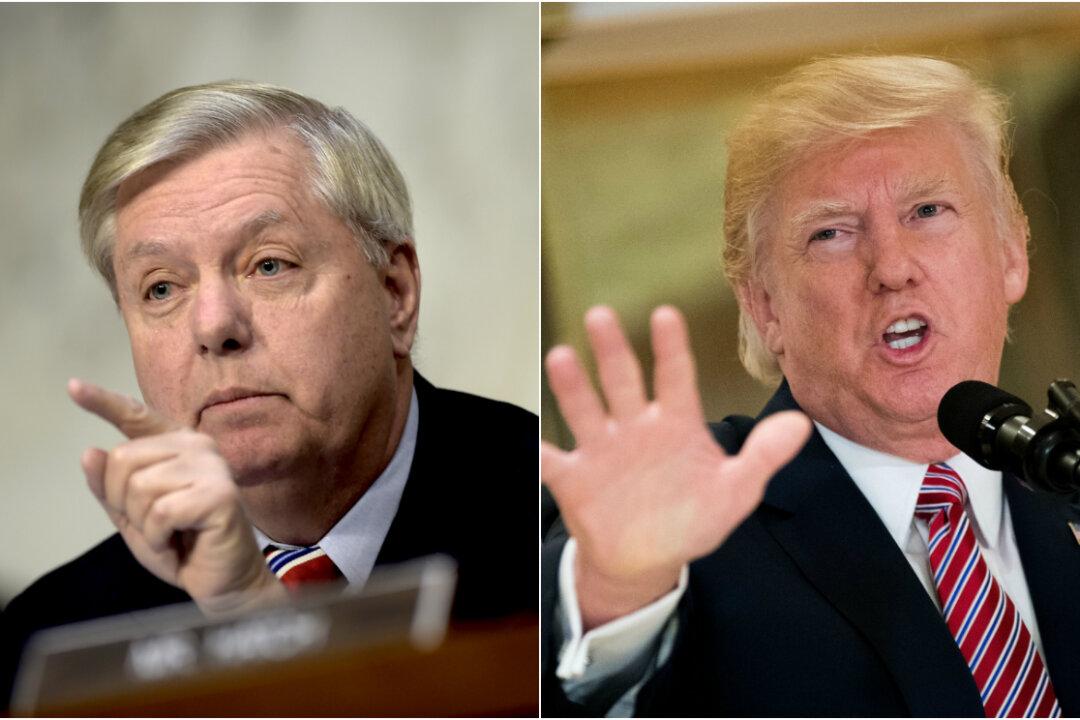A group of GOP senators led by Sen. Lindsey Graham (R-S.C.) expressed opposition to a suggestion by former President Donald Trump that he would pardon Jan. 6 defendants if he returned to the Oval Office in 2025.
Trump has on several occasions decried the treatment of Jan. 6 defendants and hinted at the possibility of a presidential pardon.





